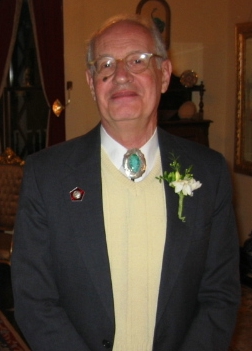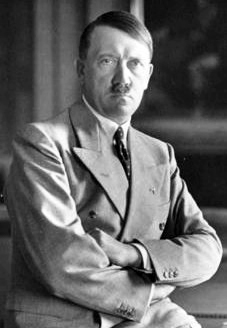Related Research Articles

Lebensraum is a German concept of expansionism and Völkisch nationalism, the philosophy and policies of which were common to German politics from the 1890s to the 1940s. First popularized around 1901, Lebensraum became a geopolitical goal of Imperial Germany in World War I (1914–1918), as the core element of the Septemberprogramm of territorial expansion. The most extreme form of this ideology was supported by the Nazi Party and Nazi Germany. Lebensraum was a leading motivation of Nazi Germany to initiate World War II, and it would continue this policy until the end of the conflict.

Konstantin Hermann Karl Freiherr von Neurath was a German diplomat and Nazi war criminal who served as Foreign Minister of Germany between 1932 and 1938.

The Reich Security Main Office was an organization under Heinrich Himmler in his dual capacity as Chef der Deutschen Polizei and Reichsführer-SS, the head of the Nazi Party's Schutzstaffel (SS). The organization's stated duty was to fight all "enemies of the Reich" inside and outside the borders of Nazi Germany.
The Hossbach Memorandum is a summary of a meeting in Berlin on 5 November 1937 attended by German dictator Adolf Hitler and his military and foreign policy leadership in which Hitler outlined his expansionist policies. The meeting marked the beginning of Hitler's foreign policies becoming radicalised.

The political views of Adolf Hitler, dictator of Germany from 1933 to 1945, have presented historians and biographers with some difficulty. Hitler's writings and methods were often adapted to need and circumstance, although there were some steady themes, including antisemitism, anti-communism, anti-slavism, anti-parliamentarianism, German Lebensraum, belief in the superiority of an "Aryan race" and an extreme form of Socialistic German nationalism. Hitler personally claimed he was fighting against a depreciation of race purity and a race attribute based conspiracy of "Jewish" "Marxism and "Jewish" Capitalism.
Fritz Fischer was a German historian best known for his analysis of the causes of World War I. In the early 1960s Fischer advanced the controversial thesis at the time that responsibility for the outbreak of the war rested solely on Imperial Germany. Fischer's anti-revisionist claims shocked the West German government and historical establishment, as it made Germany guilty for both world wars, challenging the national belief in Germany's innocence and converting its recent history into one of conquest and aggression.

Sir Ian Kershaw is an English historian whose work has chiefly focused on the social history of 20th-century Germany. He is regarded by many as one of the world's foremost experts on Adolf Hitler and Nazi Germany, and is particularly noted for his biographies of Hitler.
Geopolitik was a German school of geopolitics which existed between the late 19th century and World War II.
The Historikerstreit was a dispute in the late 1980s in West Germany between conservative and left-of-center academics and other intellectuals about how to incorporate Nazi Germany and the Holocaust into German historiography, and more generally into the German people's view of themselves. The dispute was initiated with the Bitburg controversy, which related to a commemorative service at a German military cemetery where members of the Waffen-SS were buried. The service was attended by President of the United States Ronald Reagan, who had been invited by the West German Chancellor Helmut Kohl. The Bitburg ceremony was widely interpreted in Germany as the beginning of the "normalization" of the nation's Nazi past, and inspired a slew of criticisms and defenses that made up the initiating arguments of the Historikerstreit. The dispute quickly outgrew the initial context of the Bitburg controversy, however, and became a series of broader historiographic, political, and critical debates about how the episode of the Holocaust should be understood in Germany's history and identity.
Andreas Fritz Hillgruber was a conservative German historian who was influential as a military and diplomatic historian who played a leading role in the Historikerstreit of the 1980s. In his controversial book Zweierlei Untergang, he wrote that historians should "identify" with the Wehrmacht fighting on the Eastern Front and asserted that there was no moral difference between Allied policies towards Germany in 1944 and 1945 and the genocide waged against the Jews. The British historian Richard J. Evans wrote that Hillgruber was a great historian whose once-sterling reputation was in ruins as a result of the Historikerstreit.
Klaus Hildebrand is a German liberal-conservative historian whose area of expertise is 19th–20th-century German political and military history.
The functionalism–intentionalism debate is a historiographical debate about the reasons for the Holocaust as well as most aspects of the Third Reich, such as foreign policy. It essentially centres on two questions:
Martin Broszat was a German historian specializing in modern German social history. As director of the Institut für Zeitgeschichte in Munich from 1972 until his death, he became known as one of the world's most eminent scholars of Nazi Germany.

Saul Friedländer is a Czech-Jewish-born historian and a professor emeritus of history at UCLA.

The Zweites Buch, published in English as Hitler's Secret Book and later as Hitler's Second Book, is an unedited transcript of Adolf Hitler's thoughts on foreign policy written in 1928; it was written after Mein Kampf and was not published in his lifetime.

Gerhard Ludwig Weinberg is a German-born American diplomatic and military historian noted for his studies in the history of Nazi Germany and World War II. Weinberg is the William Rand Kenan, Jr. Professor Emeritus of History at the University of North Carolina at Chapel Hill. He has been a member of the history faculty at UNC-Chapel Hill since 1974. Previously he served on the faculties of the University of Michigan (1959–1974) and the University of Kentucky (1957–1959).
Nazism, the common name in English for National Socialism, is the far-right totalitarian socio-political ideology and practices associated with Adolf Hitler and the Nazi Party (NSDAP) in Germany. During Hitler's rise to power in 1930s Europe, it was frequently referred to as Hitlerism. The later related term "neo-Nazism" is applied to other far-right groups with similar ideas which formed after the Second World War when the Nazi regime collapsed.
The foreign relations of Third Reich were characterized by the territorial expansionist ambitions of Germany's dictator Adolf Hitler and the promotion of the ideologies of anti-communism and antisemitism within Germany and its conquered territories. The Nazi regime oversaw Germany's rise as a militarist world power from the state of humiliation and disempowerment it had experienced following its defeat in World War I. From the late 1930s to its defeat in 1945, Germany was the most formidable of the Axis powers - a military alliance between Imperial Japan, Fascist Italy, and their allies and puppet states. Adolph Hitler made most of the major diplomatic policy decisions, while foreign minister Konstantin von Neurath handled routine business.

The relationship between the Wehrmacht and the Nazi Party which ruled Germany has been the subject of an extensive historiographical debate.

The historiography of Adolf Hitler deals with the academic studies of Adolf Hitler from the 1930s to the present. In 1998, a German editor said there were 120,000 studies of Hitler and Nazi Germany. Since then many more have appeared, with many of them decisively shaping the historiography regarding Hitler.
References
- ↑ Hillgruber; A, F. 'Hitlers Strategie: Politik und Kriegführung, 1940-1941' Bernard & Graefe Verlag für Wehrwesen, 1965
- ↑ McDonough, F., (2002), Hitler, Chamberlain and Appeasement, p.77, Cambridge, Cambridge University Press
- ↑ Noakes, J., and Pridham, G., (1997), 'Nazism 1919-1945. Volume 3: Foreign Policy, War and Racial Extermination', p.8, Exeter, University of Exeter Press.
- ↑ Tomorrow the World: Hitler, Northwest Africa, and the Path toward America by Norman J. W. Goda, 1999
- ↑ Watt, D. C., (1990), 'How War Came', p.32, London, Mandarin
- ↑ "Shorter notice. Tomorrow the World: Hitler, Northwest Africa, and the Path Towards America. Norman J W Goda". ehr.oxfordjournals.org. Archived from the original on 9 June 2015. Retrieved 17 January 2022.
- ↑ Fischer; F. From Kaiserreich to Third Reich: Elements of Continuity in German History, 1871-1945 Allen & Unwin, 1986
- ↑ Taylor, A. J. P. Origins of the Second World War Simon & Schuster 1961